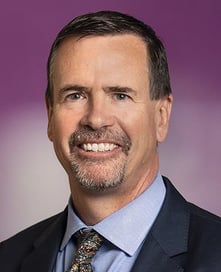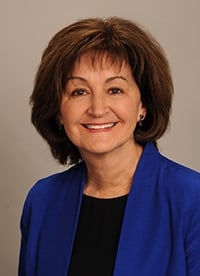The percentage of parents who refuse all vaccines for their children is small, roughly about 3%. There is, however, an increasing number of parents who refuse or want to defer individual vaccines or use an immunization schedule for their child that is not recommended. That’s according to Children’s Hospital Colorado’s primary care pediatrician and health services researcher Allison Kempe, MD, MPH, and pediatric infectious disease specialist Sean O’Leary, MD, MPH, who’ve been working on vaccine research related to hesitancy for over two decades.
Together with Children’s Colorado, the Anschutz Medical Campus, and a myriad of local, regional and national organizations, Drs. Kempe and O’Leary are using their research to educate parents and inform providers on how best to address a debate that, at least according to nearly everyone in the medical community, really shouldn’t exist — but does.
Preparing providers to handle vaccine hesitancy
|
Allison Kempe, MD, MPH/MSPH Professor of Pediatrics, CU-School of Medicine Director of ACCORDS |
“We’ve had a rapid survey unit in place for over 15 years that solicits information from primary care providers, pediatricians, general internal medicine physicians and family practitioners,” says Dr. Kempe. “We’ve found that a majority of providers — pediatricians especially — are spending more than 10 minutes or even up to 20 minutes discussing vaccines if parents are hesitant.”
Given that an average primary care visit is around 13 minutes, that leaves little to no time for addressing other important topics like nutrition and sleep. “And then we go into the next visit over-remembering having just had a difficult conversation, assuming that the next parent is going to be resistant to vaccines,” says Dr. O’Leary. “It’s an unconscious cycle that can lead to under-vaccinating.”
Some providers simply aren’t aware of the most effective ways to approach vaccine safety and hesitancy with parents because, up until the last few years, most residency programs weren’t teaching residents how. Drs. Kempe and O’Leary are working through community outreach, in-person education sessions and web-based modules to help providers communicate about the topic more effectively. And many residency curricula now include vaccine hesitancy. Part of Dr. O’Leary’s curriculum at the University of Colorado School of Medicine is resident led. “I give them the information, and they craft emails for the other residents who are in training,” he says. “So they all get weekly emails about vaccines written by their peers.”
Pinpointing the cause of vaccine hesitancy
Using the World Health Organization’s scale, Dr. Kempe and team launched two national surveys over the past year to measure the level of parental hesitancy and pinpoint the cause. The surveys, one for parents of adolescent children and one for younger children, were set up to provide a direct comparison between different types of vaccines. About 1 in 15 parents qualified as hesitant for routine childhood vaccines. By comparison, almost 1 in 4 parents scored as hesitant for flu and HPV vaccines. For influenza vaccine, the hesitancy was about effectiveness. Parents don’t believe it works. “You can understand how that’s happened,” says Dr. Kempe. “Every year there’s all these discussions about, ‘Is there a good match with the flu vaccine?’”
Even with a low match, of course, a flu vaccine decreases severe disease and hospitalization. But that doesn’t seem to be sticking with parents, she says. With the HPV vaccine, it’s the conversations about sexual activity that make parents uncomfortable. That finding actually led to a currently active randomized controlled trial looking at whether introducing the HPV vaccine earlier, at say 9 or 10 years old, is better for uptake than the routine age of 11 or 12.
“By introducing the vaccine earlier, which is safe and currently within the recommendation guidelines, maybe we can separate discussion about the vaccine with discussions about sexual activity,” says Dr. Kempe. “Instead, we can really focus on the cancer prevention aspect similar to the way we approach the hepatitis B vaccine with parents and their babies.”
Addressing vaccine safety skepticism

Sean O'Leary, MD, MPH Assistant Professor of Pediatrics, CU-School of Medicine ACCORDS Investigator |
“One thing medical experts have been pondering during the COVID-19 pandemic is: Will it lead to a reversal of this decades long assault on science?” asks Dr. O’Leary. “I’m part of a study right now where we’re enrolling parents of newborns and measuring their hesitancy over time.” The study, which finishes enrolling in July, will follow the participants’ vaccination uptake for 18 months past initial enrollment. “I would love to think that hesitancy will decrease, given everything we’ve gone through over the past year, but we’ll see,” he says.
Drs. Kempe and O’Leary hope their research will eventually help them put a prebunking initiative into place, essentially getting information to individuals before they develop hesitancy views. “We don’t know as much as we need to, particularly at the population level, to know how to approach this yet,” says Dr. Kempe. “But we do know we should be using parents who are pro-vaccination as advocates to help normalize vaccination, we need to do more in the prenatal period before parents hear misinformation about childhood vaccines, and we need to be using social media more effectively.”
Dr. Kempe is the founding director of the Adult and Child Consortium for Health Outcomes Research and Delivery Science (ACCORDS), a program funded in part by Children’s Colorado to support innovative and interdisciplinary research across the Anschutz Medical Campus. It’s the only program of its kind in the country, and it’s well known for its work on immunization delivery. Increasing vaccine delivery is especially important in communities of color, who are historically skeptical of the medical field and are disproportionately affected by both access issues and disparities.
“ACCORDS has fellowships where we train fellows and faculty in health services research to be able to answer concrete questions like how to get immunizations delivered to those who need them most,” says Dr. Kempe. “And together with community organizations like Immunize Colorado, which has put together a COVID-19 taskforce to deliver targeted messages via trusted messengers within specific communities, we’re hoping we can make a significant impact."
[Thank you to our partners at Children's Hospital Colorado for supplying this story. Read the original online article HERE].




